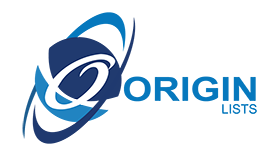
10 Essential Key Points About Audiologist Services
The field of audiology is dedicated to the diagnosis and treatment of hearing and balance disorders. Audiologists specialize in the study of hearing science and collaborate with diverse patients, spanning from infants to seniors, to enhance their auditory and communication capabilities. While their primary focus is on individual patient care, there is also a significant B2B ecosystem in audiology that focuses on providing products and services to other businesses in the industry. This blog will explore 10 insights into the audiologist sector and its marketing process.
Understanding the audiologist sector insights is essential for targeting the audience and educating them about hearing health and hearing aid industry trends. B2B audiology marketing includes various divisions like manufacturing, distributing, professional networking, advertising, and more. Audiologists and other medical professionals benefit from these marketing efforts through improved access to advanced technologies and streamlined communication channels, facilitating better collaboration and enhanced patient care.
10 Insights into the Audiologist Sector and its Marketing Process
1) Audiology industry survey:
The audiologist sector is one of the significant branches of the healthcare industry. It has a wide demand and is essential for treating patients suffering from hearing problems. LinkedIn has stated that the global market size of audiology devices reached $10.40 billion in 2023 and is projected to grow to approximately 18.71 billion by 2032.
So, establishing your B2B entity in this vast operating industry requires significant research and the capitalization of resources with effective marketing strategies for audiologists to gain extensive market recognition, visibility, and trust.
2) New marketing trends:
Audiology sector innovations and market growth are evolving on a large scale. Teleaudiology, advanced hearing aid technology, personalized hearing solutions, digital health tools, 3D printing in hearing aid manufacturing, and many other innovations are transforming the landscape of hearing healthcare.
Moreover, it is said by the American Speech-Language-Hearing Association that the job growth of audiologists is expected to increase by 13% by 2029, indicating advancements in the field of health science.
3) Customer demographics:
In the B2B sector of audiology, it is important to focus on customer care and assistance. By providing exceptional service and support to their customers, businesses can differentiate themselves from their competitors and build long-term relationships with their clients.
This can include offering training and educational resources to help audiologists and audiology equipment distributors stay up-to-date on the latest developments in audiology, as well as providing technical support and troubleshooting services to ensure that products and equipment are working properly.
4) Competitive landscape:
There is strong competition in the market where all the economic adversaries are running behind new networking opportunities. Each of the opponents is adapting to the new healthcare trends with upgraded technology.
They are equipping new audiology devices like cochlear implants, bone-anchored hearing aids, and other diagnostic devices for individuals with conductive hearing loss. Both investment and technological advancement are crucial to running your business operations and establishing new audiologist B2B relationships.
5) Business-to-Business marketing:
Businesses in the audiology B2B sector can benefit from targeted advertising campaigns. This can include targeted digital ads on social media platforms and industry-specific websites, as well as print ads in trade publications and other industry-related publications. By targeting their advertising efforts at specific audiences, businesses can maximize their return on investment and reach their desired customer base.
According to Cardinal, on average, 71% of healthcare customers depend on online reviews. This indicates the importance of online advertising and customer feedback. These are the major audiology B2B strategies to implement in your business operations.
6) Thought leadership:
Establishing one’s company within the audiology industry as a thought leader is one of the most successful marketing methods available to companies operating in the B2B sector of the industry. Businesses can generate credibility and establish themselves as trusted authorities in their respective fields by providing their thoughts and areas of knowledge regarding the most recent advancements and trends in audiology.
To facilitate becoming a thought leader in the audiology industry, businesses should actively engage in knowledge-sharing activities such as publishing research papers, contributing articles to industry publications, and participating in panel discussions at conferences and webinars.
7) Business outreach:
The B2B sector of audiology needs to establish strong relationships with key industry players, including audiologists, hearing-aid manufacturers, medical device suppliers, and other healthcare providers. This can be achieved through targeted outreach efforts, such as attending industry conferences and trade shows, sponsoring industry meetings, and hosting networking events.
By building effective relationships with such industry professionals, businesses can gain valuable insights into the needs and preferences of their target audience and tailor their marketing strategies accordingly.
8) Collaborating initiatives:
Businesses in the audiology industry can also benefit from building strong partnerships with complementary businesses in the industry. This can include partnering with manufacturers to offer bundled products and services, collaborating with distributors to expand their reach, or partnering with other service providers to offer comprehensive audiology solutions to their clients.
For that, you must leverage an accurate and reliable audiologist email list to enhance your business network by connecting with the leading healthcare providers and medical professionals in the audiology industry.
9) Regulatory compliance:
Operating a B2B business in the audiology sector requires adherence to all legal regulations and policies to ensure compliance with industry standards. This involves various laws, such as the National Code of Conduct for Healthcare Workers, to ensure ethical behavior and professionalism. The Health Insurance Profitability and Accountability Act (HIPPA) for the protection of patient information and the Medical Device Regulation (MDR) to authenticate the delivery of safe and effective products and services.
Additionally, compliance with Occupational Safety and Health Administration (OSHA) guidelines is necessary to maintain a safe working environment for employees in the audiology sector, as these policies are essential in every stage of a healthcare business.
10) Patient care and support:
Patient care and support in audiology services encompasses a wide range of diagnoses and treatments for hearing concerns. It includes hearing aid fittings, diagnostic assessments, rehabilitation services, counseling, and other hearing health interventions aimed at improving the communication abilities of the individuals.
Furthermore, educating the patients about hearing health and organizing medical campaigns in prospective locations facilitate direct connection with clients, which can significantly contribute to your audiology market growth.
What is the B2B sector in Audiology?
The B2B sector in audiology comprises various businesses, including manufacturers of hearing aids and related products, audiology equipment distributors, and other audiology-related service providers. These businesses often work closely with audiologists to ensure that patients receive the highest quality care and access the latest technologies and treatments.
The business-to-business sector plays a critical role in research and development efforts aimed at advancing the field of audiology. By investing in such fields, businesses can develop new and innovative products and services that help audiologists provide better patient care.
In addition, the B2B sector can also help expand the reach of audiology services by developing new marketing and distribution channels, and partnering with healthcare providers and insurance companies to increase awareness of and access to audiology services.
Conclusion
Ultimately, these 10 insights into the audiologist sector and its marketing process underscore the importance of patient-centered care, audiology service offerings, and community engagement. Moreover, the B2B sector is important in driving innovation and growth in the audiology industry.
To succeed in this highly competitive sector, you must establish yourself as a thought leader, build strong relationships with key industry players, focus on targeted advertising campaigns, and prioritize customer service and support. Additionally, you should always remain up-to-date on the latest developments and trends in audiology, as this is a constantly evolving field that requires constant innovation and adaptation.
So, find a prominent email database provider like OriginLists, which can offer authentic B2B email lists for your marketing campaigns, facilitating global outreach in the audiology sector.


